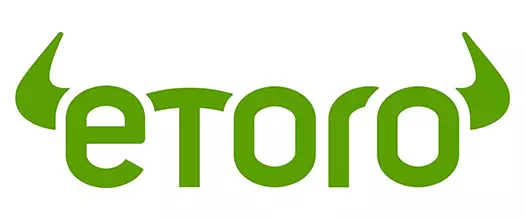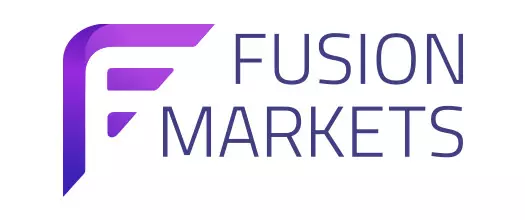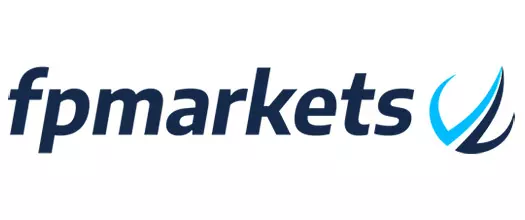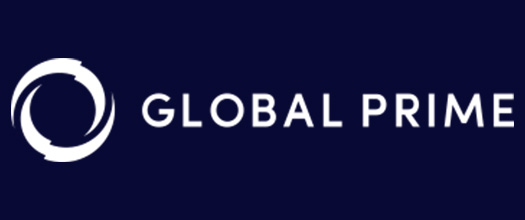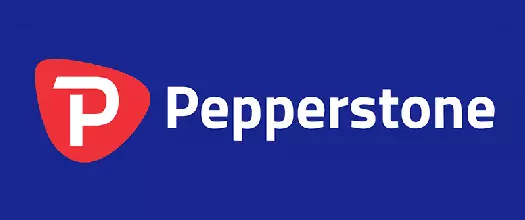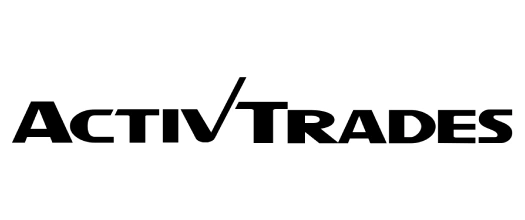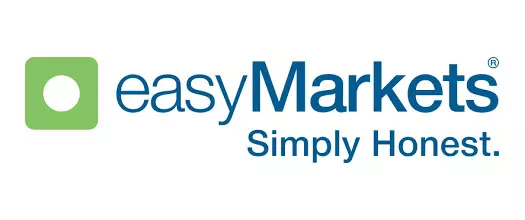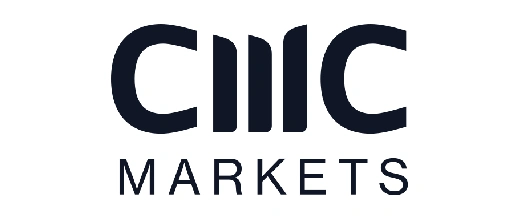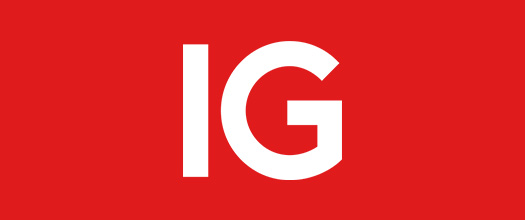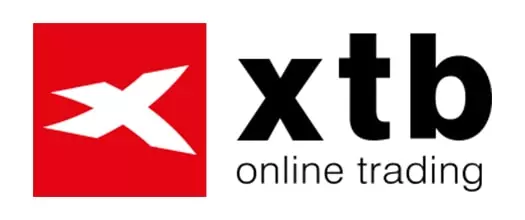Our team of expert traders has tested several regulated and trustworthy stock trading brokers that allow you to speculate on Google’s share price movements. Each broker received a quality score based on several factors, including its Trustpilot rating, regulation, fees and commissions, available trading platforms, customer service, and more.
 Plus500 USThis content applies only to Plus500 US and clients from the United States. Trading futures involves the risk of loss.
Plus500 USThis content applies only to Plus500 US and clients from the United States. Trading futures involves the risk of loss. eToro61% of retail investor accounts lose money
eToro61% of retail investor accounts lose money Fusion Markets74-89% of retail's CFD accounts lose money
Fusion Markets74-89% of retail's CFD accounts lose money FP Markets73.85% of retail investor accounts lose money
FP Markets73.85% of retail investor accounts lose money Global Prime74-89% of retail CFD accounts lose money
Global Prime74-89% of retail CFD accounts lose money Pepperstone75.5% of retail investor accounts lose money
Pepperstone75.5% of retail investor accounts lose money
Top Google stock brokers
There are quite a few factors to consider when choosing a stock broker. They include, but are not limited to, the regulation under which the brand operates, pricing and trading terms, longevity in the market and its corresponding reputation, etc. Sometimes it is not about whether the brokerage is good at its job, but whether it suits your preferred trading style. You are welcome to read our short reviews of ten of the best Google stock trading brokers and choose the most suitable option.
 TRADE NOWREAD REVIEWRegulatorsPlatformsMetaTrader 4, MetaTrader 5, Proprietary Mobile, Proprietary Web1. PepperstoneMin Deposit$0FeesDaily swap charge: 2.5% for CFDsDeposit MethodsCommissions$0.02 per shareSpreadEUR/USD: AVG 1.1 pips, GBP/USD: AVG 1.3 pips, USDJPY: AVG 1.3 pipsWithdrawal MethodsLeverage EU1:500 (CySEC | Pro Account), 1:30 (CySEC | Retail Account), 1:30 (FCA | Retail Account)Leverage non-EU1:500 (SCB | Pro Account), 1:30 (ASIC | Retail Account), 1:30 (DFSA | Retail Account), 1:200 (SCB | Retail Account)InstrumentsCommodity CFDs, Crypto CFDs, Energy CFDs, Forex CFDs, Index CFDs, Metal CFDs, Stock CFDsCFDs are complex instruments and come with a high risk of losing money rapidly due to leverage. 75.9% of retail investor accounts lose money when trading CFDs with this provider. You should consider whether you understand how CFDs work, and whether you can afford to take the high risk of losing your money.
TRADE NOWREAD REVIEWRegulatorsPlatformsMetaTrader 4, MetaTrader 5, Proprietary Mobile, Proprietary Web1. PepperstoneMin Deposit$0FeesDaily swap charge: 2.5% for CFDsDeposit MethodsCommissions$0.02 per shareSpreadEUR/USD: AVG 1.1 pips, GBP/USD: AVG 1.3 pips, USDJPY: AVG 1.3 pipsWithdrawal MethodsLeverage EU1:500 (CySEC | Pro Account), 1:30 (CySEC | Retail Account), 1:30 (FCA | Retail Account)Leverage non-EU1:500 (SCB | Pro Account), 1:30 (ASIC | Retail Account), 1:30 (DFSA | Retail Account), 1:200 (SCB | Retail Account)InstrumentsCommodity CFDs, Crypto CFDs, Energy CFDs, Forex CFDs, Index CFDs, Metal CFDs, Stock CFDsCFDs are complex instruments and come with a high risk of losing money rapidly due to leverage. 75.9% of retail investor accounts lose money when trading CFDs with this provider. You should consider whether you understand how CFDs work, and whether you can afford to take the high risk of losing your money.Founded more than a decade ago, Pepperstone is now one of the most sought-after brokerage brands. It offers a wide range of trading instruments, including share CFDs, Forex, commodities, cryptocurrencies, and more. Traders who set up accounts with Pepperstone will benefit from competitive pricing, fast order execution, and no dealing-desk intervention. There is no minimum deposit requirement; however, Pepperstone recommends funding your account with at least $200.
The share CFDs section of this trading broker helps you gain exposure to hundreds of companies from the US, UK, Germany, Hong Kong, and Australia. More than 600 of these companies are American, with the relevant commission being $0.02 per share. For users’ convenience, the available U.S. shares are divided into two categories – NASDAQ and NYSE – each with subsections for different industry sectors.
As a Pepperstone user, you can trade from any device and location, as the broker offers a diverse selection of desktop and mobile trading platforms such as TradingView, MetaTrader4, MetaTrader5, and cTrader. Furthermore, the broker provides access to Capitalise.ai, a relatively new platform that enables automated trading based on predefined strategies.
- 2. Global PrimeMin Deposit$0Fees
- Swap long: -3.76%
- Swap short: -3.82%
Deposit MethodsCommissionsFrom $0SpreadEUR/USD: AVG 1.04 pips, GBP/USD: AVG 1.3 pips, USDJPY: AVG 1.32 pipsWithdrawal MethodsLeverage EU1:5Leverage non-EU1:500 (ASIC | Pro Account), 1:30 (ASIC | Retail Account), 1:500 (VFSC)InstrumentsCommodity CFDs, Forex CFDs, Index CFDs, Metal CFDsTrading derivatives is high risk. Losses can exceed your initial investment. You should only trade with money you can afford to lose. Any Information or advice contained on this website is general in nature and has been prepared without taking into account your objectives, financial situation or needs. Past performance of any product described on this website is not a reliable indication of future performance.Headquartered in Sydney, Australia, Global Prime is an online trading broker that receives high ratings from traders around the world. A reference to the Trustpilot platform shows that 90% of users who have rated the brokerage express positive feedback about its services and customer support.
Global Prime’s operations are licensed and monitored by three regulatory bodies, providing extensive geographic coverage. The broker holds licenses issued by the Australian Securities & Investments Commission (ASIC), the Vanuatu Financial Services Commission (VFSC), and the Financial Services Authority of Seychelles (FSA). Traders from the UK and the US are not allowed to open accounts with Global Prime because it lacks authorization from the FCA and CFTC, respectively. Although the website is accessible from those regions, its login tab remains inactive.
Unlike the financial information about Forex (majors, minors, and exotics), indices, and commodities that is readily available for users to check, the data related to stocks is accessible only after setting up an account. What we learned after a live chat session with a customer support representative is that swap rates are constant at -3.76% (long) and -3.82% (short).
 TRADE NOWREAD REVIEWRegulatorsCONSOB (Italy, # 211), FCA (United Kingdom, # 434413), SCB (Bahamas, # 199667 B), CMVM (Portugal, # 433), FSCM (Mauritius, # GB24203277), CVM (Brazil, # 43050.917/0001-03)PlatformsMetaTrader 4, MetaTrader 5, Proprietary Web, TradingView3. ActivTradesMin Deposit$0FeesSwap rates in %:
TRADE NOWREAD REVIEWRegulatorsCONSOB (Italy, # 211), FCA (United Kingdom, # 434413), SCB (Bahamas, # 199667 B), CMVM (Portugal, # 433), FSCM (Mauritius, # GB24203277), CVM (Brazil, # 43050.917/0001-03)PlatformsMetaTrader 4, MetaTrader 5, Proprietary Web, TradingView3. ActivTradesMin Deposit$0FeesSwap rates in %:- Long: -7.299
- Short: 1.299
Deposit MethodsCommissions$0.02 per US share ($1 minimum)SpreadEUR/USD: AVG 0.5 pips, GBP/USD: AVG 0.8 pips, USDJPY: AVG 0.5 pipsWithdrawal MethodsLeverage EU1:5Leverage non-EU1:400 (CMVM | Pro Account), 1:30 (CMVM | Retail Account), 1:1000 (FSC), 1:200 (SCB)InstrumentsBonds CFDs, Commodity CFDs, Crypto CFDs, ETF CFDs, Forex CFDs, Index CFDs, Share CFDsCFDs are complex instruments and come with a high risk of losing money rapidly due to leverage. 73% of retail investor accounts lose money when trading CFDs with this provider.You should consider whether you understand how CFDs work and whether you can afford to take the high risk of losing your money.ActivTrades is a globally recognized online broker that serves clients in more than 170 countries and is backed by robust regulatory oversight from five financial authorities, including the UK’s FCA and Portugal’s CMVM. The company offers access to a wide range of markets, including Forex, Shares, Indices, Cryptocurrencies, ETFs, Commodities, and Bonds, totaling more than 1,100 financial instruments. Share trading makes up the bulk of the broker’s offering, with more than 900 stocks from exchanges across a dozen countries.
Traders interested in trading US shares, specifically Google stock, will find that the broker offers favorable trading conditions and a transparent pricing policy. For US shares, the broker charges a fixed commission of US$0.02 per share, with a minimum charge of US$1. In addition to commissions, overnight swap rates apply to all positions in CFDs on shares held overnight. Holding a long position in Google stock overnight could result in a swap charge of -7.299, while a short position might yield a credit of 1.299.
In addition to US shares, traders can trade company shares from other countries, including the UK, France, Germany, Italy, Portugal, Sweden, and Denmark.
 TRADE NOWREAD REVIEWRegulatorsCIRO (Canada), CySEC (Cyprus, # 347/17), FRSA (United Arab Emirates, # 190018), FFAJ (Japan, # 1574), FSCA (South Africa, # 45984), FSRA (Canada, # 190018), ISA (Israel, # 514666577), JFSA (Japan, # 1662), ASIC (Australia, # 406684), BVIFSC (Virgin Islands, British, # SIBA/L/13/1049), CBI (Ireland, # C53877)PlatformsAvaOptions, DupliTrade, AvaSocial, MetaTrader 4, MetaTrader 5, AvaTadeGO, Proprietary Web, ZuluTrade4. AvaTradeMin Deposit$100FeesOvernight interest (daily):
TRADE NOWREAD REVIEWRegulatorsCIRO (Canada), CySEC (Cyprus, # 347/17), FRSA (United Arab Emirates, # 190018), FFAJ (Japan, # 1574), FSCA (South Africa, # 45984), FSRA (Canada, # 190018), ISA (Israel, # 514666577), JFSA (Japan, # 1662), ASIC (Australia, # 406684), BVIFSC (Virgin Islands, British, # SIBA/L/13/1049), CBI (Ireland, # C53877)PlatformsAvaOptions, DupliTrade, AvaSocial, MetaTrader 4, MetaTrader 5, AvaTadeGO, Proprietary Web, ZuluTrade4. AvaTradeMin Deposit$100FeesOvernight interest (daily):- Sell: -0.0144%
- Buy: -0.0189%
Deposit MethodsCommissionsNoneSpreadEUR/USD: AVG 0.8 pips, GBP/USD: AVG 1.2 pips, USDJPY: AVG 1.3 pipsWithdrawal MethodsLeverage EU1:5Leverage non-EU1:400 (Pro Account), 1:30 (Standard Account)InstrumentsBonds CFDs, Commodity CFDs, Crypto CFDs, Crypto Options, Energy CFDs, ETF CFDs, Forex CFDs, Forex Options, Index CFDs, Index Options, Metal CFDs, Share CFDs, Stock CFDs, Stock Options, US Stock OptionsCFDs are complex instruments and come with a high risk of losing money rapidly due to leverage. 71% of retail investor accounts lose money when trading CFDs with this provider. You should consider whether you understand how CFDs work and whether you can afford to take the high risk of losing your money.AvaTrade is a reliable, heavily regulated online trading broker established in 2006. We can safely say this is a truly global brand, as its client base has surpassed 300,000 traders residing in multiple jurisdictions around the world. AvaTrade is authorized to operate in the following regions: Ireland, the European Union, Australia, the Middle East, South Africa, and the British Virgin Islands (intl.). Moreover, its website is available in nearly 30 languages, which once again emphasizes AvaTrade’s global approach.
AvaTrade offers a financial instruments section that includes shares, stock indices, commodities, and forex pairs. Stock traders who open accounts with the brokerage can choose from more than 600 stocks, including Google, which features a typical spread of 0.13% and 1:5 retail leverage. Users have access to three trading platforms – WebTrader, MetaTrader 4, and MetaTrader 5. Keep in mind, however, that you can trade most stocks only via MT5.
Another notable strength of AvaTrade is the extensive educational content it provides to traders without access restrictions. This section of the broker’s website is bursting at the seams with tutorial videos, various guides, and professional articles on the specialized trading blog.
 TRADE NOWREAD REVIEWRegulatorsCySEC (Cyprus, # 079/07), FSAS (Seychelles, # SD056), FSCA (South Africa, # 54018), ASIC (Australia, # 246566), BVIFSC (Virgin Islands, British, # SIBA/L/20/1135)PlatformsMetaTrader 4, MetaTrader 5, Proprietary Mobile, Proprietary Web, TradingView5. easyMarketsMin Deposit$25 ($2,000 for MT4 Premium, $10,000 for MT4 VIP)FeesVariable rolling/renewal feesDeposit MethodsCommissions$0SpreadEUR/USD: MIN 0.8 pips, EUR/USD: AVG 0.7 pips, GBP/USD: MIN 1.4 pips, GBP/USD: AVG 0.9 pips, USDJPY: MIN 1.5 pips, USDJPY: AVG 2 pipsWithdrawal MethodsLeverage EU1:500 (CySEC | Pro Account), 1:30 (CySEC | Retail Account)Leverage non-EU1:500 (ASIC | Pro Account), 1:30 (ASIC | Retail Account), 1:2000 (FSAS | Retail Account)InstrumentsCommodity CFDs, Crypto CFDs, Forex CFDs, Forex Forwards, Forex Options, Index CFDs, Metal CFDs, Metal Options, Share CFDsCFDs and Options are complex instruments and come with a high risk of losing money rapidly due to leverage. 61% of retail investor accounts lose money when trading CFDs with this provider. You should consider whether you understand how CFDs and Options work and whether you can afford to take the high risk of losing your money.
TRADE NOWREAD REVIEWRegulatorsCySEC (Cyprus, # 079/07), FSAS (Seychelles, # SD056), FSCA (South Africa, # 54018), ASIC (Australia, # 246566), BVIFSC (Virgin Islands, British, # SIBA/L/20/1135)PlatformsMetaTrader 4, MetaTrader 5, Proprietary Mobile, Proprietary Web, TradingView5. easyMarketsMin Deposit$25 ($2,000 for MT4 Premium, $10,000 for MT4 VIP)FeesVariable rolling/renewal feesDeposit MethodsCommissions$0SpreadEUR/USD: MIN 0.8 pips, EUR/USD: AVG 0.7 pips, GBP/USD: MIN 1.4 pips, GBP/USD: AVG 0.9 pips, USDJPY: MIN 1.5 pips, USDJPY: AVG 2 pipsWithdrawal MethodsLeverage EU1:500 (CySEC | Pro Account), 1:30 (CySEC | Retail Account)Leverage non-EU1:500 (ASIC | Pro Account), 1:30 (ASIC | Retail Account), 1:2000 (FSAS | Retail Account)InstrumentsCommodity CFDs, Crypto CFDs, Forex CFDs, Forex Forwards, Forex Options, Index CFDs, Metal CFDs, Metal Options, Share CFDsCFDs and Options are complex instruments and come with a high risk of losing money rapidly due to leverage. 61% of retail investor accounts lose money when trading CFDs with this provider. You should consider whether you understand how CFDs and Options work and whether you can afford to take the high risk of losing your money.Given its more than 20 years of experience in the trading field, easyMarkets ranks among the most proficient stock brokers today. Over the past decade, the brand has won several reputable awards, including Most Transparent Broker, Best Trading Platform, and Most Innovative Broker. Over the years, easyMarkets has continually expanded its portfolio and today allows its registered users to trade shares, cryptocurrencies, metals, commodities, stock indices, and forex.
Traders who decide to join easyMarkets can take advantage of several beneficial features. For example, Freeze Rate is a unique tool that allows you to lock the price you see for a few seconds, giving you extra time to execute a deal. Another tool, dealCancellation, as the name suggests, lets traders cancel a losing deal. The functionality must be expressly activated for 1, 3, or 6 hours.
Regarding stocks, easyMarkets offers two types of spreads, and their availability depends on the trading platform you choose. Traders who use the broker’s proprietary platform and mobile applications, as well as TradingView and MetaTrader 4, will encounter fixed spreads that do not change despite market volatility. Tight variable spreads are available to MetaTrader 5 users.
- 6. FBSMin DepositCent accounts: $10; AU$50 (ASIC accounts)Fees
- Swap long: -2.58%
- Swap short: -2.42%
Deposit MethodsCommissions0.7% of order valueSpreadEUR/USD: AVG 0.7 pips, GBP/USD: AVG 1.2 pips, USDJPY: AVG 1.3 pipsWithdrawal MethodsLeverage EU1:30 (CySEC)Leverage non-EU1:30 (ASIC), 1:3000 (FSC), 1:500 (Pro Account), 1:30 (Retail Account)InstrumentsEnergy CFDs, Forex CFDs, Index CFDs, Metal CFDs, Share CFDsᏟᖴᎠs are complex instruments and come with a high risk of losing money rapidly due to leverage. 76.5% of retail investor accounts lose money when trading ᏟᖴᎠs with this provider. You should consider whether you understand how ᏟᖴᎠs work and whether you can afford to take the high risk of losing your money.FBS is an international trading brand that unites several independent companies under its umbrella. Its 24/5 customer support team, which speaks more than 15 languages, responds to traders’ requests with impressive speed; this is a key reason the number of registered users already exceeds 17,000,000. Therefore, it is no wonder that, in July 2022, FBS was announced as the winner of the ‘Best Customer Service Broker Global’ award by World Business Outlook magazine.
Founded in 2009, FBS has gained extensive experience and offers its clients the opportunity to trade highly sought-after financial instruments, including stocks, indices, Forex pairs, cryptocurrencies, metals, energies, and Forex exotics. The interface of the shares section may vary slightly depending on your location, but it consistently provides the same detailed information about each stock. For example, the minimum spread for Google is 10.0, while the current average is 18.0.
In terms of account variety, FBS surpasses most of its competitors. The broker offers three main account types – Standard, Cent, and Crypto – with demo versions available for the first two. This is particularly advantageous for beginner traders who need time to familiarize themselves with the specifics of online trading.
- 7. CMC MarketsMin Deposit$0FeesHolding costs:
- Buy: -4.5200%
- Sell: 1.8800%
Deposit MethodsCommissions$0.02 per shareSpreadEUR/USD: MIN 0.5 pips, EUR/USD: AVG 0.6 pips, GBP/USD: MIN 0.9 pips, GBP/USD: AVG 1.1 pips, USDJPY: MIN 0.7 pips, USDJPY: AVG 1.3 pipsWithdrawal MethodsLeverage EU1:500 (FCA | Pro Account), 1:30 (BaFin | Retail Account), 1:30 (FCA | Retail Account)Leverage non-EU1:500 (ASIC | Pro Account), 1:30 (ASIC | Retail Account), 1:20 (MAS | Retail Account)InstrumentsCommodity CFDs, Crypto CFDs, Energy CFDs, ETF CFDs, Forex CFDs, Index CFDs, Metal CFDs, Share CFDs, Stock CFDs, US Stock CFDsSpread bets and CFDs are complex instruments and come with a high risk of losing money rapidly due to leverage. 78% of retail investor accounts lose money when spread betting and/or trading CFDs with this provider. You should consider whether you understand how spread bets and CFDs work and whether you can afford to take the high risk of losing your money.CMC Markets is a trustworthy brokerage firm that is highly valued for its diverse portfolio and extensive educational content. The broker has taken care to provide both seasoned traders and beginners with a comprehensive package of services and risk-management tools that vary slightly across the different account types. Both spread betting (available only in the UK and Ireland) and CFD trading are offered on shares, share baskets, and a wide range of other assets.
The global footprint of CMC Markets is evident from the set of licenses currently held by the brokerage. The FCA, ASIC, MAS, and IIROC regulate the broker’s operations in the UK, Australia, Singapore, and Canada, respectively. These four institutions are considered tier-1 industry regulators. Other bodies monitoring CMC Markets include BaFin in Germany and the FMA in New Zealand.
The broker’s award-winning trading platform allows trading in more than 8,000 shares with leverage of up to 1:5. With regard to Google, both Class A and Class C shares are available, with current spreads of 6.0 and 15.0, respectively. CMC Markets provides a brief description of each share class, while drop-down menus contain key information on trading details, margin rates, and trading hours. The risk on each trade can be managed with stop-loss and take-profit orders; however, these orders are still susceptible to market slippage, so use them with caution.
- 8. HYCMMin Deposit$100Fees
- Long swap: -3%
- Short swap: -3%
CommissionsFrom $0Spread439Leverage EU1:5Leverage non-EU1:20CFDs are complex instruments and come with a high risk of losing money rapidly due to leverage. 72% of retail investor accounts lose money when trading CFDs with this provider. You should consider whether you understand how CFDs work and whether you can afford to take the high risk of losing your money.HYCM has been providing trading services since 1998 and is a highly experienced broker, trusted by thousands of stock traders in more than 140 countries across Europe, Asia, and Australia. The brokerage holds licenses issued by the Financial Conduct Authority (FCA), the Cyprus Securities and Exchange Commission (CySEC), the Cayman Islands Monetary Authority (CIMA), and the Dubai Financial Services Authority (DFSA).
The range of markets covered by HYCM includes stocks, forex, indices, cryptocurrencies, and commodities. We noticed that the exact availability is not uniform in all eligible countries, so we advise you to review the broker’s portfolio before setting up an account with HYCM. However, there is no need to do this if your plan is to trade Alphabet stocks, because they are available in all eligible jurisdictions. The only difference is that EU and UK traders can use only the MetaTrader 4 platform, whereas those in regions under CIMA or DFSA regulation may also opt for MetaTrader 5.
Traders can open one of three account types offered by HYCM – Fixed, Classic, and Raw Spread – depending on their trading style. The Fixed Spreads account comes with relatively higher spreads compared with the other two options and zero commission. Keep in mind that it lacks EA availability. Classic accounts have similar conditions, except that the spreads are variable. The advantage of Raw accounts is the ultra-tight spreads they offer, provided you are willing to pay a $4 per round commission.
 TRADE NOWREAD REVIEWRegulatorsCFTC (United States, # 0509630), DFSA (United Arab Emirates, # F001780), FCA (United Kingdom, # 944492), FFAJ (Japan), FINMA (Switzerland, # IG Bank S.A.), FMA (New Zealand, # 684191), FSCA (South Africa, # 41393), JFSA (Japan, # 9010401051715), MAS (Singapore, # 1489), ASIC (Australia, # 515106), BaFin (Germany, # 148759), BMA (Bermuda, # 54814)PlatformsL2 Dealer, MetaTrader 4, Proprietary Web, ProRealTime, TradingView9. IGMin Deposit$50FeesOvernight funding admin fees: 2.5 - 3%Deposit MethodsCommissions2 cents/share, $15 minSpreadEUR/USD: AVG 1.13 pips, EUR/USD: MIN 0.6 pips, GBP/USD: AVG 2.38 pips, GBP/USD: MIN 0.9 pips, USDJPY: AVG 1.8 pips, USDJPY: MIN 0.7 pipsWithdrawal MethodsLeverage EU1:222 (BaFin | Pro Account), 1:30 (BaFin | Retail Account), 1:30 (FCA | Retail Account)Leverage non-EU1:30 (ASIC | Retail Account), 1:200 (BMA | Retail Account)InstrumentsBond Futures, Bond Options, Bond Spread Betting, Bonds CFDs, Commodity CFDs, Commodity Futures, Commodity Options, Commodity Spread Betting, Crypto CFDs, Crypto Options, Crypto Spread Betting, Currency Futures, Energy CFDs, Energy Futures, Energy Options, Energy Spread Betting, ETF CFDs, ETF Options, ETF Spread Betting, Forex CFDs, Forex Options, Forex Spread Betting, Index CFDs, Index Futures, Index Options, Index Spread Betting, Interest Rate Futures, Metal CFDs, Metal Futures, Metal Options, Metals Spread Betting, Share CFDs, Stock CFDs, Stock Options, Stock Spread Betting, US Stock CFDs, US Stock Options, US Stock Spread BettingSpread bets and CFDs are complex instruments and come with a high risk of losing money rapidly due to leverage. 79% of retail investor accounts lose money when trading spread bets and CFDs with this provider. You should consider whether you understand how spread bets and CFDs work, and whether you can afford to take the high risk of losing your money. Options and turbo warrants are complex financial instruments and your capital is at risk. Losses may be extremely rapid.
TRADE NOWREAD REVIEWRegulatorsCFTC (United States, # 0509630), DFSA (United Arab Emirates, # F001780), FCA (United Kingdom, # 944492), FFAJ (Japan), FINMA (Switzerland, # IG Bank S.A.), FMA (New Zealand, # 684191), FSCA (South Africa, # 41393), JFSA (Japan, # 9010401051715), MAS (Singapore, # 1489), ASIC (Australia, # 515106), BaFin (Germany, # 148759), BMA (Bermuda, # 54814)PlatformsL2 Dealer, MetaTrader 4, Proprietary Web, ProRealTime, TradingView9. IGMin Deposit$50FeesOvernight funding admin fees: 2.5 - 3%Deposit MethodsCommissions2 cents/share, $15 minSpreadEUR/USD: AVG 1.13 pips, EUR/USD: MIN 0.6 pips, GBP/USD: AVG 2.38 pips, GBP/USD: MIN 0.9 pips, USDJPY: AVG 1.8 pips, USDJPY: MIN 0.7 pipsWithdrawal MethodsLeverage EU1:222 (BaFin | Pro Account), 1:30 (BaFin | Retail Account), 1:30 (FCA | Retail Account)Leverage non-EU1:30 (ASIC | Retail Account), 1:200 (BMA | Retail Account)InstrumentsBond Futures, Bond Options, Bond Spread Betting, Bonds CFDs, Commodity CFDs, Commodity Futures, Commodity Options, Commodity Spread Betting, Crypto CFDs, Crypto Options, Crypto Spread Betting, Currency Futures, Energy CFDs, Energy Futures, Energy Options, Energy Spread Betting, ETF CFDs, ETF Options, ETF Spread Betting, Forex CFDs, Forex Options, Forex Spread Betting, Index CFDs, Index Futures, Index Options, Index Spread Betting, Interest Rate Futures, Metal CFDs, Metal Futures, Metal Options, Metals Spread Betting, Share CFDs, Stock CFDs, Stock Options, Stock Spread Betting, US Stock CFDs, US Stock Options, US Stock Spread BettingSpread bets and CFDs are complex instruments and come with a high risk of losing money rapidly due to leverage. 79% of retail investor accounts lose money when trading spread bets and CFDs with this provider. You should consider whether you understand how spread bets and CFDs work, and whether you can afford to take the high risk of losing your money. Options and turbo warrants are complex financial instruments and your capital is at risk. Losses may be extremely rapid.IG is one of those trading brokers that are perfectly suitable for both professional traders and those who are just entering the online trading environment. A market presence of nearly half a decade is itself enough to convince anyone that this stock broker offers fair and competitive trading conditions to its registered users. Although service availability may depend on location, IG’s platform allows for spread betting, CFD trading, and share dealing.
The team behind IG has made sure that traders can operate with the brokerage regardless of device and location. Mobile trading is possible thanks to a proprietary downloadable application that replicates the functionality of the web-based platform, which means you can open and close positions as well as use the available research and monitoring tools while on the go. A mobile version of the MetaTrader 4 platform is also available, adding to the convenience of CFD account holders. In terms of desktop trading, traders can choose among ProRealTime, L2 Dealer, and MT4.
More than 13,000 international shares are available in IG’s portfolio, with pricing information presented in a clear and understandable manner. For U.S. shares, the commission is 2 cents per share, with a minimum charge of $15. The brokerage has published two extensive articles that explain the differences between spread betting and share dealing, on the one hand, and CFDs and share dealing, on the other.
 TRADE NOWREAD REVIEWRegulatorsCNMV (Spain, # 40), CySEC (Cyprus, # 169/12), DFSA (United Arab Emirates, # F006316), FCA (United Kingdom, # 522157), FSCA (South Africa, # 49970), FSAN (Norway, # FT00118162), IFSC (Belize, # 000302/11), KNF (Poland), BaFin (Germany)PlatformsxStation 510. XTBMin Deposit$250FeesNo swap ratesDeposit MethodsCommissionsFrom $0SpreadEUR/USD: AVG 0.9 pips, GBP/USD: AVG 2.2 pips, USDJPY: AVG 1.4 pipsWithdrawal MethodsLeverage EU1:200 (CySEC | Pro Account), 1:30 (CySEC | Retail Account), 1:30 (FCA | Retail Account)Leverage non-EU1:500 (IFSC | Retail Account)InstrumentsCommodity CFDs, Crypto CFDs, Energy CFDs, ETF CFDs, Forex CFDs, Index CFDs, Metal CFDs, Share CFDs, Stock CFDs, US Stock CFDsCFDs are complex instruments and come with a high risk of losing money rapidly due to leverage. 83% of retail investor accounts lose money when trading CFDs with this provider. You should consider whether you understand how CFDs work and whether you can afford to take the high risk of losing your money.
TRADE NOWREAD REVIEWRegulatorsCNMV (Spain, # 40), CySEC (Cyprus, # 169/12), DFSA (United Arab Emirates, # F006316), FCA (United Kingdom, # 522157), FSCA (South Africa, # 49970), FSAN (Norway, # FT00118162), IFSC (Belize, # 000302/11), KNF (Poland), BaFin (Germany)PlatformsxStation 510. XTBMin Deposit$250FeesNo swap ratesDeposit MethodsCommissionsFrom $0SpreadEUR/USD: AVG 0.9 pips, GBP/USD: AVG 2.2 pips, USDJPY: AVG 1.4 pipsWithdrawal MethodsLeverage EU1:200 (CySEC | Pro Account), 1:30 (CySEC | Retail Account), 1:30 (FCA | Retail Account)Leverage non-EU1:500 (IFSC | Retail Account)InstrumentsCommodity CFDs, Crypto CFDs, Energy CFDs, ETF CFDs, Forex CFDs, Index CFDs, Metal CFDs, Share CFDs, Stock CFDs, US Stock CFDsCFDs are complex instruments and come with a high risk of losing money rapidly due to leverage. 83% of retail investor accounts lose money when trading CFDs with this provider. You should consider whether you understand how CFDs work and whether you can afford to take the high risk of losing your money.XTB is a leading European brokerage company providing a well-regulated and user-friendly trading environment for users from nearly every part of the world. This Google stock trading broker operates in the EU under the supervision of the Cyprus Securities and Exchange Commission (CySEC), while in the UK it is licensed by the Financial Conduct Authority (FCA). XTB also holds active licenses issued by the IFSC and the local authorities in Poland and Spain.
XTB has opted to use only a proprietary trading platform, rather than relying on third-party options such as MetaTrader 4 or MetaTrader 5. The broker’s innovative solution is called xStation 5, and it comes with advanced charting tools and a customizable interface. The platform boasts one of the highest order-execution speeds in the market and an exceptionally rich selection of trading tools, including performance statistics, sentiment analysis, and more. On-the-go trading is available via the xStation mobile app.
Currently, the portfolio of XTB offers more than 1,850 global stock CFDs, including GOOG and GOOGL. No commission is charged, and the minimum order size is $50. Of course, before you start trading, you need to fund your account. The supported payment methods include bank transfers, credit cards, and e-wallets. The latter is the only option that incurs a transaction fee – 2% of the deposited amount.
You know a brand is particularly successful when its name becomes a byword for the service or product it represents. This is exactly the case with Google, as users worldwide equate it with an online search engine, although the internet offers several alternatives. Over the years, the scope of the company’s activities expanded so much that a complete reorganisation was necessary to manage the search engine, the Chrome internet browser, the Android operating system, Gmail, YouTube and all the other services under the umbrella of Google Inc.
As a result, Alphabet Inc. was established in 2015 and is now the parent company of Google and its former subsidiaries. In terms of revenue, Alphabet is the third-largest technology company and is also part of the Big Five, which includes the leading US tech giants.
How Google stock trading works for traders and brokers
No matter how limited a brokerage’s portfolio is, it almost invariably includes Alphabet stock. Global trading brokers recognise the high level of interest users show and provide conditions to meet the needs of both novice traders and experienced professionals. The former usually look for commission-free accounts to avoid additional calculations that could complicate the trading process further. From a financial point of view, it is not a problem for brokers to offer such an option because they incorporate all costs into the spread.
Fundamentals of Google stock
Do not be surprised if you find two different ticker symbols for Google stock among a broker’s trading instruments. They are the result of the 2014 stock split, when the company issued a class C share for each class A share then held by shareholders. To decide which one to trade (if both are available), you need to understand what differentiates one stock from the other.
- GOOGL – class A shares, also known as common shares. They confer voting rights in addition to the default ownership stake.
- GOOG – class C shares. Shareholders receive an ownership stake but do not have voting rights.
Despite the core difference between the two types of Google stock, they usually trade at roughly the same price. In this case, the value of having a say as a shareholder will be decisive when determining which stock to invest in.

